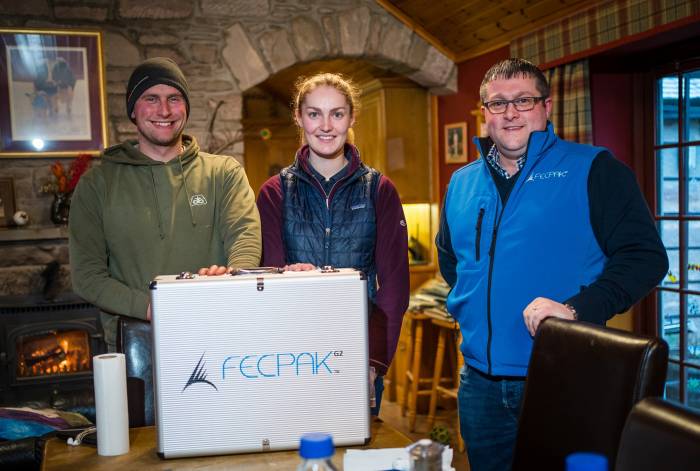17th May 2022
While many 2022-born lambs have developed immunity to nematodirus, there is still a ‘sting in the tail’ for younger lambs and in parts of the country where temperatures have been slow to increase this spring.
Speaking on behalf of the Sustainable Control of Parasites in Sheep (SCOPS) group, Davinia Hinde of Bainbridge Vets, North Yorkshire, says: “Nematodirus is always difficult to predict and this year is no different, with the risk of a real sting in the tail for some producers. It’s important not to assume the threat has passed as spring gets into full swing, which is why the SCOPS Nematodirus Forecast, a free-to-use service, continues to be available to sheep farmers, vets and advisers.
“At particular risk are younger lambs that haven’t yet developed immunity. Also lambs grazing fields on north facing slopes, or in cooler and/or higher parts of the country, where a sudden increase in temperature can trigger a mass hatch of the parasite that causes nematodirosis. The SCOPS Nematodirus Forecast has a colour-coded dot for weather stations right across the UK. It also shows the height about sea level for each station, allowing users to assess the relative risk to flocks in the area.”
The SCOPS Nematodirus Forecast is free to use thanks to the sponsorship of Techion (FECPAKG2) and Bimeda. At the current time, forecast users can enter an online competition to win a one-year free faecal egg count testing subscription with Techion.
Unlike with nematodirus, where the damage is done by immature larvae that are not producing eggs, faecal egg counts (FEC) are hugely useful to monitor the risk posed by parasites in later spring and throughout summer.
Davinia continues: “As the nematodirus risk reduces for some flocks, the threat from other worm species increases. Monitoring FECs in lambs from around six weeks old onwards is a vital tool to measure and respond to the risk poses on individual farms. If you’re not already in the habit of regularly testing, it’s easy to get started with the support of your vet or adviser.”
Techion’s FECPAKG2 system is one option for regularly checking faecal egg counts. The same competition linked to the SCOPS Nematodirus Forecast this year saw Louise and Ewan Smith from Perth, central Scotland, win a one-year FEC testing subscription in 2021.
Louise comments: “We had heard of FECPAK through my job as a vet, and from a neighbour who uses it, so were excited to have won the prize and put it to good use monitoring the worm challenge through the year for our sheep and cattle. By adding data to our parasite management strategy, we can optimise wormer use, maintaining anthelmintic sustainability while improving animal health.
“Monitoring for the spring-rise of nematodirus infection in lambs is extremely important. Having information about the risk of the mass-hatch of nematodirus at a local level, using the SCOPS Nematodirus Forecast, complements our on-farm FEC-testing using the FECPAKG2 system. I encourage everyone to check the forecast regularly – and to enter this year’s competition, as the prize offers a great opportunity to carry out regular FEC-testing on your own farm.”
Frank Turnbull is a parasitologist and Techion’s Sales & Relationship Manager for the North of the UK. He says: “Techion is very proud to once again sponsor the SCOPS Nematodirus Forecast, as we believe it is a vital tool for sheep farmers. Following the success of last year’s competition, we are pleased to offer the opportunity once again for a lucky winner to access a one-year free FEC-testing subscription using Techion’s FECPAKG2 system.”
SCOPS is able to provide the Nematodirus Forecast at no cost to the end user thanks to the sponsorship of Bimeda and Techion (FECPAKG2), and weather data provided by Visual Crossing.
